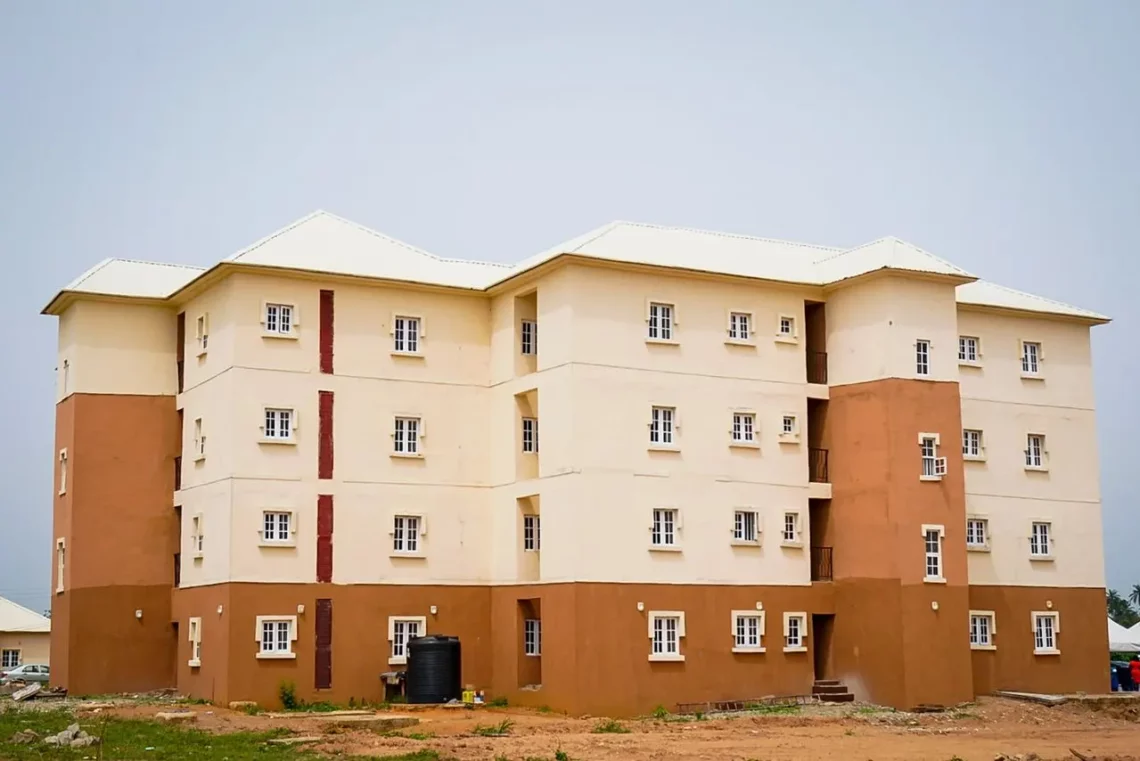Nigeria’s housing deficit ranges between 17 and 22 million units. That’s a scary figure considering the fact that Shelter is universally considered as the second most important human need, after food. Urgent steps must be taken to salvage the situation.
Over the decades, the federal government has at various times tried different housing policies and programmes to reduce housing deficit in the country, including: Land Use Act, 1978, Mortgage Institutions Act, 1989, Federal Housing Authority Act, 1990, National Urban Development Policy, 1997, as well as Housing and Urban Development Policy, 2002. Most of the policies had drawbacks of sorts.
For example, the Land Use Act of 1978 put all land under the management of government. The decree was to be advantageous for the country and its citizens with regulations to protect public interest as well as create efficiency of land use all over the country. Purchasing land in Nigeria today without acquiring Certificate of Occupancy (C of O) from the government puts you at a disadvantage since the land is not really yours. But it has also proven to be an encumbrance to prospective homeowners.
Getting a C of O can be a Herculean task for many. Not having a C of O, on the other hand, prevents access to loans or funding to develop such property. Besides the high cost of land acquisition, the cost of acquiring Certificate of Occupancy and the process involved seems to be very cumbersome and this poses a problem for housing development by individuals or real estate developers.
The Land Use Act is strongly linked to documentation process. The process of documentation and property registration takes too long. This makes people cut corners and when due process is not followed, it becomes a problem to housing development.
There is also the problem of harassment from community youths during property development, a problem that could be eliminated if the main documentation process is adequately pursued.
Another hindrance to housing development is that there aren’t many and strong mortgage institutions in Nigeria. Mortgage banking, by nature of its long term lending policy finds it difficult to survive in Nigeria considering perennial double digit inflation rates, hence a dearth of mortgage banking operations in the country.
In view of the above, it is pertinent that the federal state governments pull resources to make the process of registration and documentation of property less bureaucratic. Getting approval for building plans and acquiring Certificate of occupancy should be made easier for legitimate property owners.
Research institutes should be encouraged to exploit local raw materials and produce alternative building materials from them. Moreover, Critical review of rural and urban housing policies should be carried out by the appropriate agencies.
The national development plan of Nigeria should thoroughly take housing problems in the country into consideration and make provision for habitable accommodation. It is only such constructive approach and urgency that can help fill the housing deficit in an economy of 200 million people.





